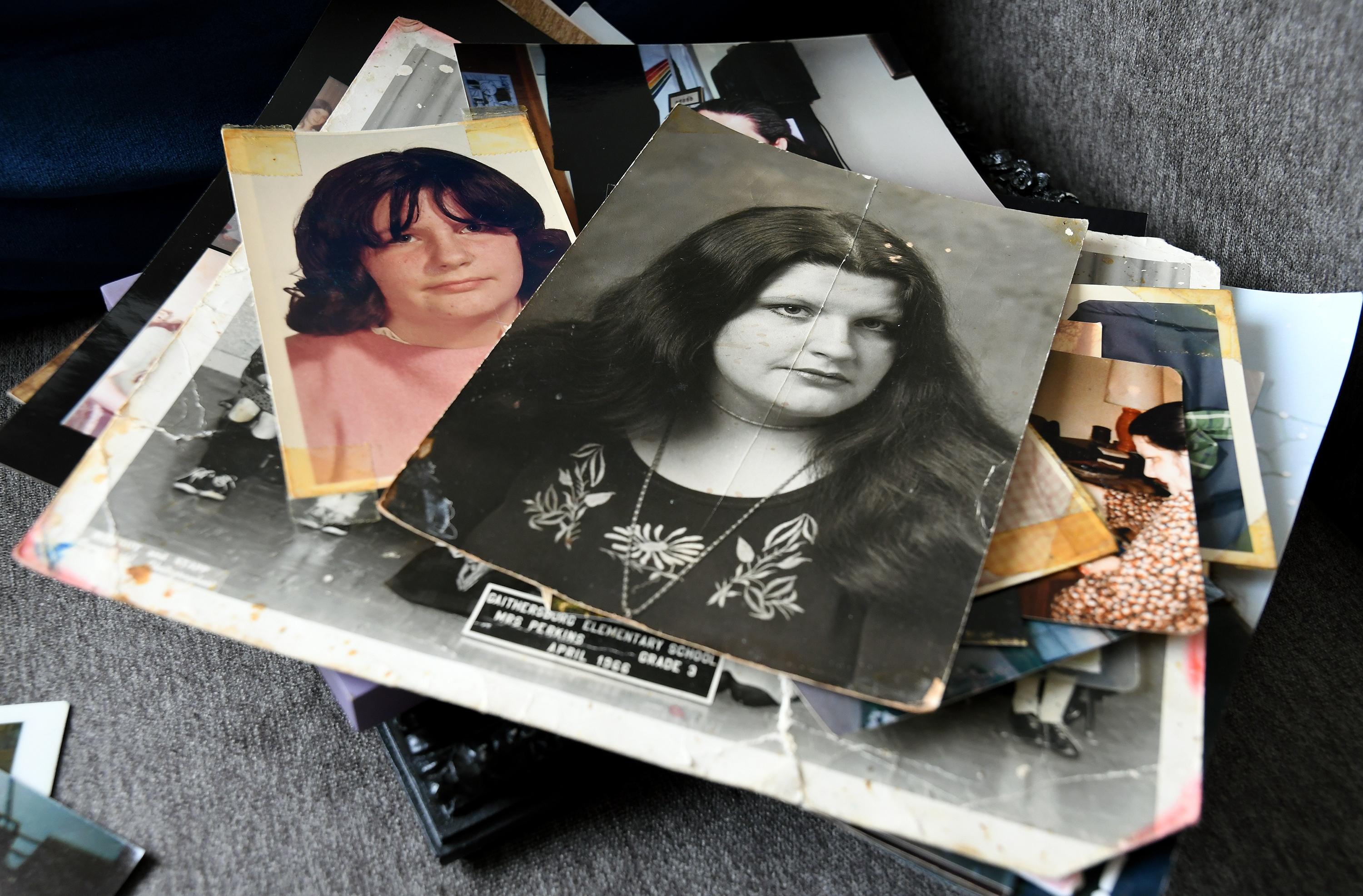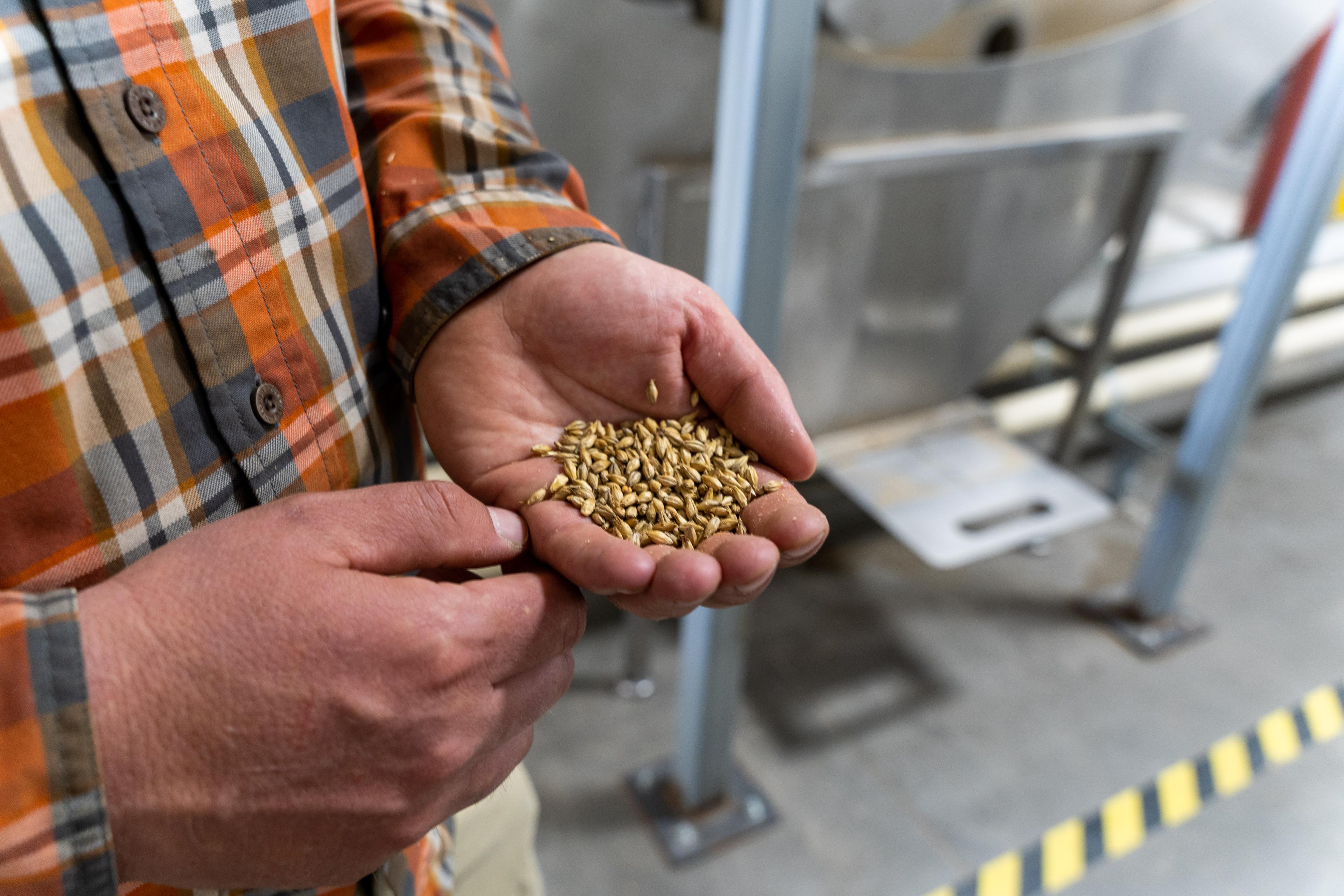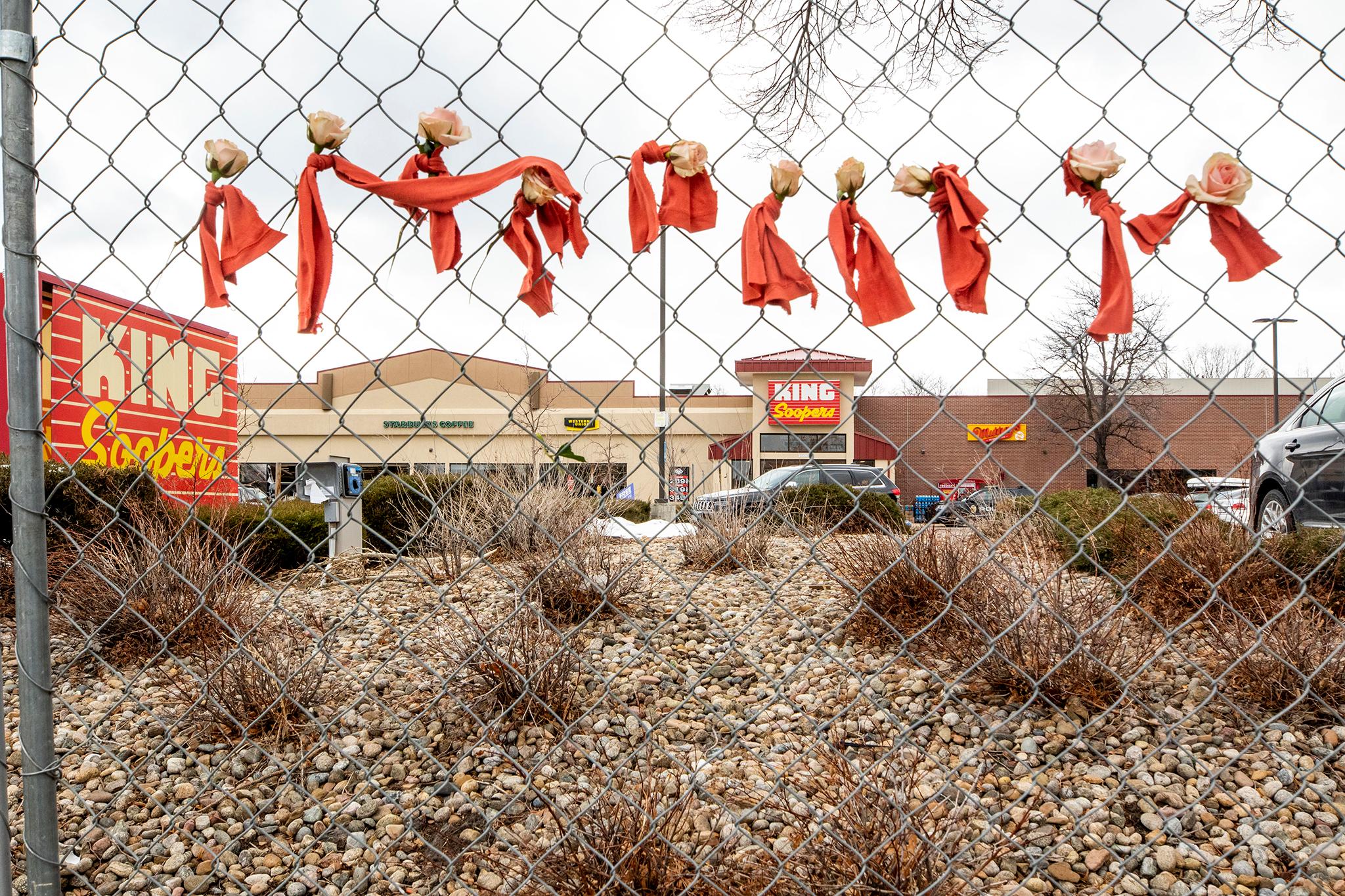
Colorado could be the next state to consider a ban on “assault-style” weapons, although discussions are still in the preliminary stages at the Colorado state capitol and no legislation has been introduced yet.
Ten people were killed in Monday’s mass shooting at a King Soopers grocery store in Boulder, and state lawmakers are grappling with what else could be done to prevent these types of tragedies from occurring.
“I'm devastated,” said Democratic Senate Majority Leader Steve Fenberg. He was born and raised in Boulder and represents the district where the shooting occurred.
“This is my grocery store. This is blocks from where my wife teaches middle school and her students go on their lunch break,” said Fenberg. “It is my job to solve solutions through policy. And that's why it's not too soon. It's frankly too late, especially for these 10 innocent lives.”
Fenberg and other Democratic state leaders say they are eager for a federal assault weapons ban. But even though President Biden called for just that on Tuesday, he isn’t optimistic Congress will act.
The U.S. Senate is currently considering two much less sweeping measures — one would require background checks for all types of gun sales and the other would remove a provision that allows gun stores to sell to people before their background check is complete if the results take too long to come back. Even those are unlikely to reach the 60 vote threshold needed to end a likely Republican filibuster.
“There's no question that the real solution has to come from the federal government. A patchwork of laws is better than nothing, but clearly, if someone is intent on causing harm and we have strict regulations in Colorado, somebody can drive an hour and a half to Wyoming,” said Fenberg. “The point is to not end gun violence tomorrow, but to prevent some of these tragedies from happening and making it so we can go longer than a week before the next tragedy.”
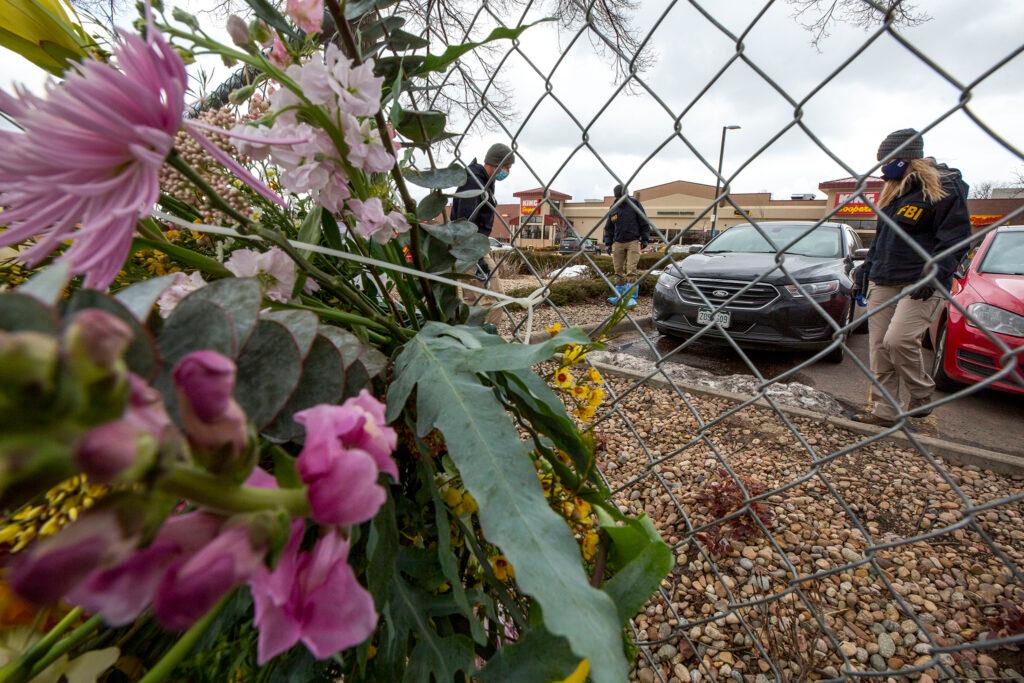
Gun laws Colorado has passed so far
Colorado already has passed several new gun laws within the last decade: a high capacity magazine ban, universal background checks, and a so-called “red flag” gun law. Opponents of stricter laws say those measures infringe on Second Amendment rights, placing burdens on law-abiding gun owners, while failing to prevent mass shootings.
Historically, opponents of bans on specific types of weapons have criticized the criteria as unenforceable and often out of touch with the nuances of firearm styles.
“We haven’t seen any bill text from Democrats on assault weapons, but I will say that we find bans to be ineffective and that they end up punishing good, law-abiding Coloradans,” said Republican Sen. John Cooke of Greeley, a former sheriff.
According to Cooke, Senate Republicans plan to respond to the Boulder shooting by pushing for a “massive investment” in mental health services.
“Something is troubled in the collective American psyche,” said Sen. Paul Lundeen, a Monument Republican. “People are hurting — and we need to do all we can to address that.”
Republican Rep. Matt Soper of Delta said after the Boulder shooting he started to hear chatter about a possible bill to ban certain types of guns statewide. He said there would be strong opposition from the GOP.
“We shouldn’t have a knee-jerk reaction to these tragedies,” he said, warning such a ban would likely be unconstitutional. “The political divide has grown even wider on the issue of guns and there’s a lot of emotion involved on both sides.”
Colorado’s own constitution protects individual gun ownership, stating: “The right of no person to keep and bear arms in defense of his home, person and property, or in aid of the civil power when thereto legally summoned, shall be called in question.”
However, the state Supreme Court has upheld past gun laws as legal under that provision.
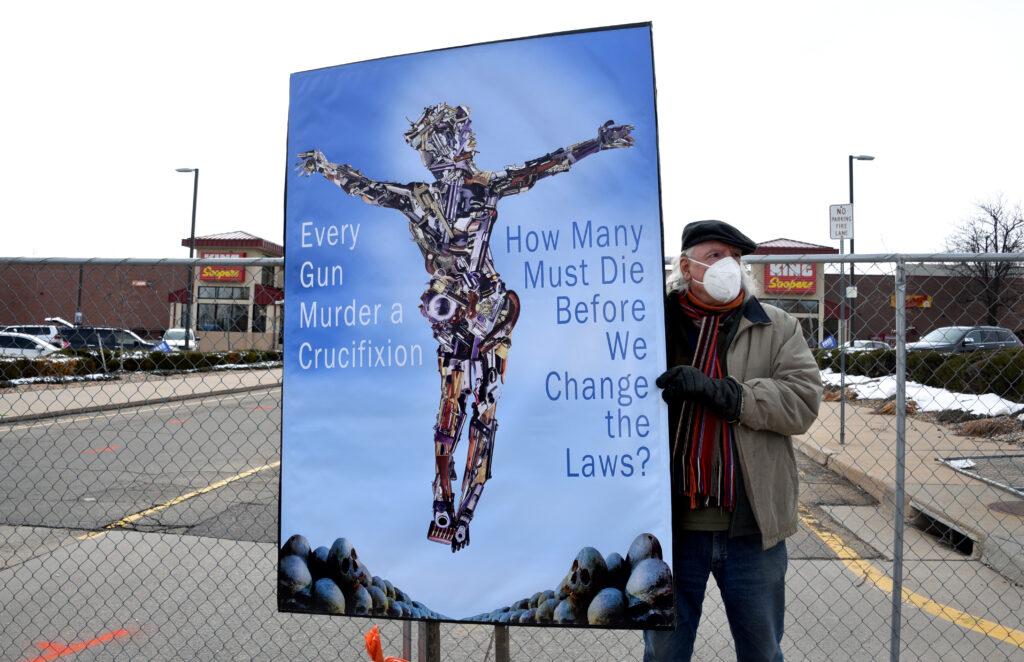
Two gun bills are already making their way through this year’s legislature
One proposal would require safe storage of firearms in many instances and the other would require people to report lost and stolen guns. Both have passed their first chamber, so far on almost entirely on party line votes.
Another bill still in the drafting stage would require a waiting period for gun purchases.
“We saw in Atlanta, the man... went and got himself a handgun and went out and murdered eight people that afternoon,” said Democratic Rep. Tom Sullivan of Centennial referring to the shootings that killed eight people in Georgia, mostly women of Asian descent. Sullivan’s own son, Alex, was killed in the 2012 Aurora theater shooting, and Sullivan has focused much of his legislative energy on championing stricter gun laws.
Currently, seven states and the District of Columbia have assault weapons bans or regulations in place. After the 2018 shooting in Parkland, Florida, the city of Boulder enacted a local assault weapons ban, but a state district court struck it down earlier in March. The court cited a 2003 Colorado law that says cities and counties cannot restrict ownership of guns that are otherwise legal under state or federal law. Fenberg said he’s considering another bill that would remove that state preemption and give local communities the ability to pass stricter gun policies.
But even if Boulder’s ban hadn’t been struck down, it likely would not have mattered for Monday’s shooting. The alleged shooter lived in Arvada and did not purchase his weapons within the city’s limits.
“Just because it wouldn't have prevented this tragedy doesn't mean, therefore it couldn't prevent another tragedy,” said Fenberg.
Democratic Sen. Sonya Jaquez Lewis from Longmont said her constituents want action on gun policy, and she’s open to sponsoring a bill on a statewide assault weapons ban.
“If I could wave a magic wand and say, ‘what could we do to address this?’ My preference would be, as President Biden stated, a federal ban because that protects all Americans. Now, obviously, there's a very narrow margin in the U.S. Senate. So, as a state Senator, I would be in favor of a statewide assault weapon ban,” she said.
The Boulder shooting is the largest mass shooting in Colorado since 2012. The state has some of the highest numbers of mass shootings in the country, beginning in 1999 with the attack on Columbine high school.
- Donations: How You Can Help The Families Of The Boulder Shooting Victims
- Victims: Who We Lost In The Boulder King Soopers Shooting
- King Soopers Employees: "We Weren't Already Hard Enough? This Had To Happen Too?”
- Motive: Police Are Still Searching For A Motive
- Weapon: The Firearm The Suspect Bought Looks Like A Rifle, But It's Regulated Like A Handgun
- Guns: We Want To Hear From You: What Do You Want To Know About Gun Laws In Colorado?
- Next Steps: Colorado Lawmakers Are Considering A Ban On 'Assault-Style' Weapons
- In Photos: Here's Some Of What We Saw As Last Week Unfolded
- Mass Shootings: Colorado Has More Mass Shootings Than Other Places
- Mental Health: As Mass Shootings And Pandemic Collide In Colorado, Mental Health Experts Urge Connection Now More Than Ever
- Suspect: Boulder DA expects to file additional charges against the 21-year-old shooter



